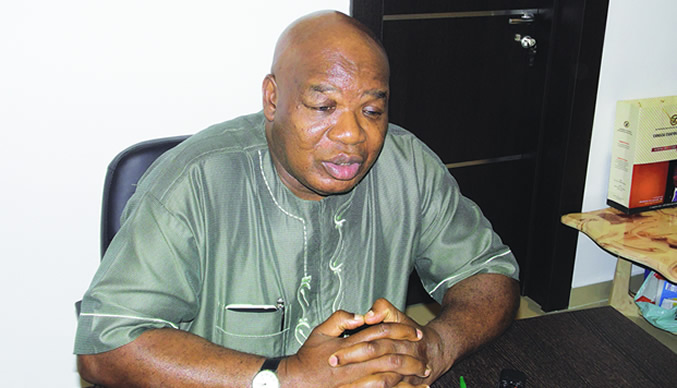The Lagos State Government has urged residents to halt the destruction of soil in the state, for a better and safer environment.

The Commissioner for the Environment, Mr Babatunde Durosinmi-Etti, said during the commemoration of the 2018 World Soil Day in Ikeja on Wednesday, December 5, 2018 that there was the need to find lasting solution to soil pollution.
Durosinmi-Etti said that pollution was a major soil threat and a serious global concern, hence, Lagosians should be mindful of their impact on the environment.
He said that residents should make the protection of the environment a priority, bearing in mind increasing challenges arising from soil pollution.
According to him, it is important to raise awareness and seek solution to the increasing challenges raised by polluting the soil.
“The State Government could not have found a better opportunity to do this than the World Soil Day with the theme: “Be the Solution to Soil Pollution”.
“Interestingly, this year’s theme is, on one hand, aimed at raising awareness on the need to sustain healthy ecosystems and human well-being by addressing the increasing challenges in soil management.
“On the other hand, it is also intended to raise the profile of healthy soil by encouraging organisations, communities and individuals around the world to give attention to the pressing issues affecting soils.
“As in other spheres, Lagos State has taken the lead by blazing the trail for Nigeria with the maiden celebration of this Day on December 5th, 2016,” he said.
Durosinmi-Etti said that the event marked the 3rd consecutive edition of the World Soil Day observance in Lagos state, which demonstrated the commitment to using global advocacy platforms to encourage friendly behaviour towards the environment.
He said that communities and individuals must be watchful and give the deserved attention to sources of soil pollution.
According to him, such sources include agrochemicals, petroleum-derived products, chemicals used in or produced as byproducts of industrial activities and wastes such as domestic, livestock and municipal wastes (including wastewater).
“These chemicals are released to the environment accidentally through oil spill or leachate from landfills.
“They are sometimes released intentionally as is the case with the use of fertilizers and pesticides, irrigation with untreated wastewater or land application of sewage sludge.
“Soil pollution also results from mining activities, transportation, poor waste disposal, flood and erosion among other activities impacting negatively on soils,” he said.
The Commissioner said that soil pollution, which often could not be visually perceived, was a hidden danger that jeopardised valuable soil ecosystem services.
He said that the valuable soil ecosystem services include climate regulation, nutrient cycling, food production, water purification, food quality and habitat for organisms, among others.
“Soil pollutants directly harm soil microorganisms and larger soil-dwelling organisms, thereby affecting soil biodiversity and the services provided by the affected organisms.
On its impact on humans, Durosinmi-Etti said that soil pollution was capable of directly affecting human health through contamination from heavy metals such as arsenic, lead and cadmium.
He said that food security would be compromised, as crops produced from polluted soils became unsafe for both human and animal consumption.
The commissioner said that to protect the soil, everyone should desist from indiscriminate disposal of spent oil, uncontrolled use of agrochemicals and improper disposal of urban and industrial wastes.
He said that the level of adherence to the advice would determine the quality of the soil, water and many other elements critical to human existence.
December 5 of every year has been designated by the United Nations as the World Soil Day, following the adoption of the 68th UN General Assembly Resolution in 2013.
By Florence Onuegbu
